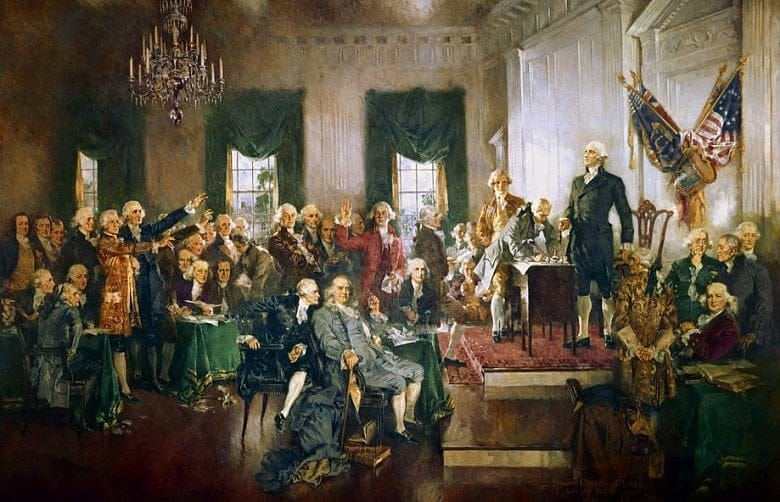Can the Rule of Law survive without faith?

Law, not faith, is our nation's shared narrative. We are a nation of laws, not of any particular religious creed. The Constitution of the United States provides the framework for peace, order, common defense, and liberty for the people of the United States. The Bill of Rights prohibits Congress from establishing a national church. There is no test of faith for citizenship. We are not a Christian nation.
These were the central points of my first two posts on this blog. These points are not novel. Indeed, they are rather simple observations regarding the American experiment. As Hamilton explained in Federalist No. 1, the framers agreed to establish a secular government purposefully by "reflection and choice" rather than "accident and force." Many of the framers were Christians. Nevertheless, they built a secular government supported by the Rule of Law rather than raw power.

